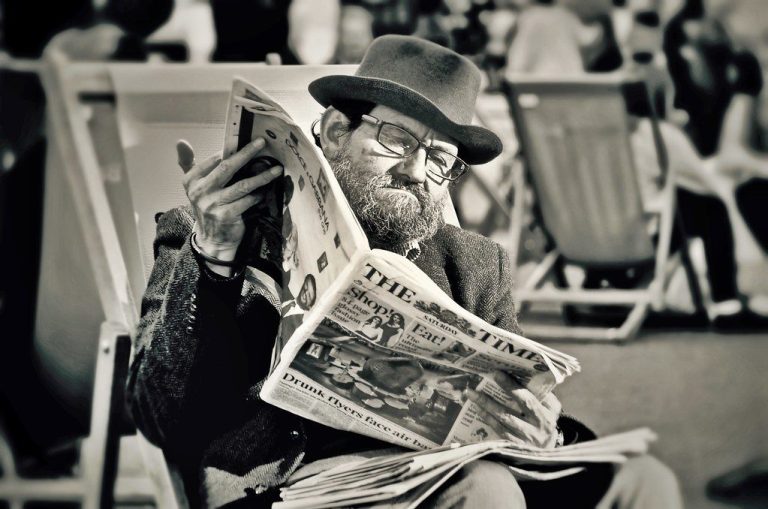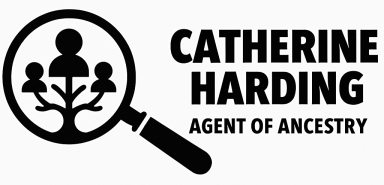
Always Knowingly Undersold
If you know me in real life, you’ll know I’m not one for blowing my own trumpet. Even though I’m a highly experienced genealogist, I’ve always shied away from charging the £20+ hourly rates many others do. Why? Maybe it’s something in my DNA! But ultimately, I’m happy with that choice.
You may come across advice online warning that if someone charges less than the going rate, they’re probably not up to scratch. In my case, that couldn’t be further from the truth.
I genuinely love what I do - uncovering stories, solving mysteries, and helping others connect with their past. And if I can earn a little while doing something I’m passionate about, then that’s a bonus.
As the saying goes, “pay peanuts, get monkeys” - but I like to think that in this case, your “peanuts” are buying you the expertise of a passionate professional who simply chooses to price fairly, not extravagantly.

On The Move
I consider myself lucky that my own family history mirrors many of the trees I’ve researched for others. My DNA reveals a fairly even mix of English, Scottish, Welsh, and Irish ancestry - exactly the backgrounds I most often explore for my clients.
Every so often, an overseas ancestor appears in a client’s tree, bringing with them equal parts excitement and challenge. Why did they leave their homeland and settle in the British Isles? What’s their story? And crucially - can I access the records that help tell it?
History gives us clues. We know about the Huguenots and Walloons who fled religious persecution, but what about ancestors from even further afield?
Sometimes history provides answers. Other times, all we have are educated guesses. Either way, these detours are always fascinating. For me, every lineage is worth exploring - whether you’re the eighth generation living in Haywards Heath, or descended from someone who once called Haiti home. Every family has a story waiting to be uncovered.

Children of Circumstance
There was a time when having a baby outside of marriage could see you cast out of society - especially in places where religion ruled the roost. Take Ireland, for example, which has been in the spotlight recently for the heartbreaking way single mothers and their children were treated, right up until the 1990s.
In my own family history, I’ve found just two “officially” illegitimate ancestors - those without named fathers. But I’ve come across plenty who were born a suspicious five or six months after their parents’ wedding day. And that’s a pattern I see time and time again in nearly every tree I research. Back then, a swift marriage was often arranged to preserve appearances - likely far from the fairy-tale wedding the bride had once imagined as a child.
One recent family tree I worked on revealed an ancestor who had four children outside of marriage over a span of 13 years. In the 1841 census, she’s living with her grandmother and one-year-old daughter. By 1851, she and her first three children were scattered across separate workhouses in South London. It’s heartbreaking to imagine how those early experiences shaped their lives and the generations that followed.
Thankfully, in the UK today, we’ve largely moved past the stigma of illegitimacy. Families come in all shapes and sizes, and there are many reasons why a child might not have both parents on the scene. What matters most now is love, support, and understanding - not outdated ideas about social standing.

Read All About It
As a child, I loved reading newspapers. Local news, home news, foreign news, politics - I had an interest in every aspect of current affairs.
When I started working at The Times in 2006, it was a dream come true. Although I wasn’t a journalist, I brought other skill sets to the table that suited the fast-paced, ever-evolving world of publishing. I was hugely grateful to be part of that environment for nearly a decade.
Since leaving, my interest in current affairs has never waned. But to truly understand the present - and to shape the future - you often have to look to the past.
When the British Newspaper Archive launched in 2011, it opened up new possibilities for my family history research. Suddenly, I could explore forgotten corners of my ancestry in ways I never could before. Through the archives, I’ve uncovered:
• Details of criminal proceedings involving ancestors on both sides of the law
• Clues to the movement of family members through property sales and business notices
• Death announcements of relatives I hadn’t even known existed
Newspapers don’t just report history - they preserve it. They capture the ordinary and extraordinary moments of everyday life. For genealogists, they’re a goldmine.
If you’re researching your own family tree, I can’t recommend newspaper archives highly enough. The stories hiding in those old pages may just change the way you see your past - and yourself.

Surname Sleuthing
I’m a bit of a surname enthusiast—especially when I come across one I’ve never heard before. Did you know that most surnames fall into four main categories?
• Geographical - based on a place (e.g. Ley, Atwood)
• Occupational - based on a job (e.g. Miller, Baker)
• Patronymic - derived from a father’s name (e.g. Benson, Harrison, Jackson)
• Nicknames - based on personality or appearance (e.g. Wise, Short)
Before 1066, surnames simply didn’t exist in England. When William the Conqueror became king after the Battle of Hastings, the population was just 1 to 2 million - so people didn’t really need second names. You might have been known as Edmund of Epping, and if your son had the same name, he’d be Edmund the Younger of Epping. That was enough to tell you apart.
Have you ever looked into your own surname?
Is it rooted in a particular part of the UK?
Does it reflect a long-lost family trade - or even match your appearance today?
Let me know - I’d love to hear!

From Riches to Rags
I’ve always been captivated by history - how it shapes who we are and where we come from. While fiction never really held my interest, give me a history book as a child and I was completely hooked!
Nothing excites me more than tracing a family line back to an ancestor who left their mark on the past. Over the past 20 years, through countless family tree commissions, I’ve uncovered some truly remarkable connections:
• Direct descendants of William the Conqueror
• Lineage tracing back to Henry V
• An ancestor who sat on the panel that sentenced Anne Boleyn
• French and Belgian forebears who fled Huguenot and Walloon persecution in the 16th and 17th centuries
• Irish ancestors who escaped the devastation of the Potato Famine
I’m not driven by wealth or titles - I care about stories. Real stories. The journeys, struggles, and decisions that brought us to where we are today.
